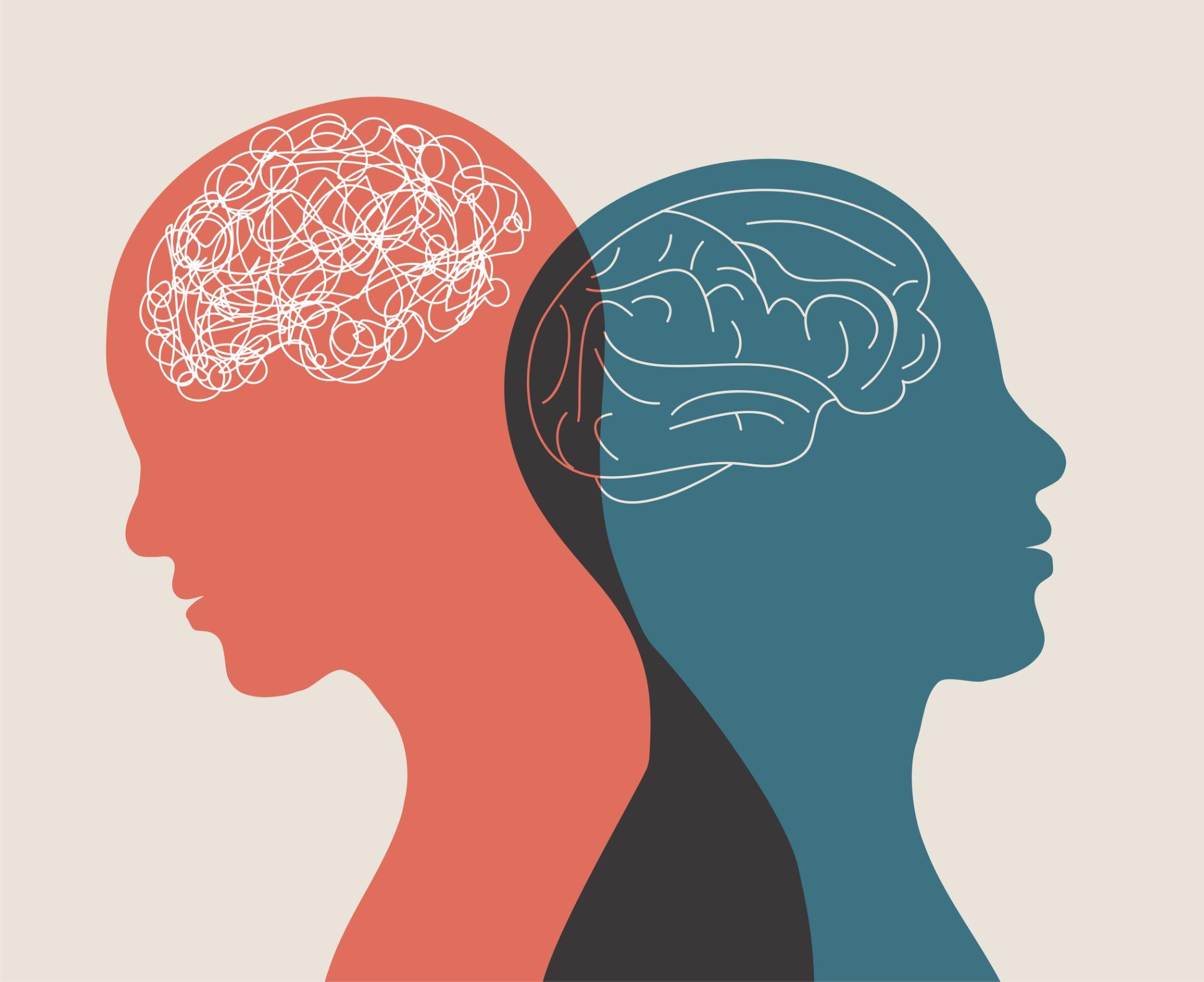Bipolar disorder is a mental illness characterized by significant mood changes, including emotional highs and lows. These mood swings can affect sleep, energy levels, behavior, judgment, and the ability to think clearly.
Navigating life with the effects of bipolar disorder can be challenging, and when addiction enters the mix, these challenges can multiply. Both conditions, deeply complex on their own, create a unique intersection that affects individuals in profound ways.
Lumina Recovery aims to shed light on the relationship between addiction and bipolar disorder, offering insight, understanding, and guidance for those experiencing these conditions, as well as their loved ones.
The Link Between Bipolar Disorder and Addiction
People with bipolar disorder often face big ups and downs in their mood. These mood changes can make daily life tough. Sometimes, individuals who develop bipolar disorder might turn to drugs or alcohol to cope with these feelings. This is common but risky because when someone uses substances to try to feel better, it can start a cycle that’s hard to break.
During high periods, called mania or manic episodes, a person might feel overly happy or energetic and might not see the need for treatment. They may use drugs to keep these feelings going. During low periods of depressive episodes, they might use substances to try to escape their sadness.1
This cycle can lead to addiction. Addiction means that a person keeps using drugs or alcohol, even when it causes harm. When someone has both bipolar disorder and an alcohol use disorder or substance use disorder, it’s known as a dual diagnosis. This situation is complex but treatable.
Impact of Substance Use on Bipolar Disorder
When someone with bipolar disorder uses drugs or alcohol, it can make their condition worse. Using substances can lead to more frequent and intense mood swings. This means that someone might experience more highs and lows than they would without using substances.
Substances can also interfere with the treatment of bipolar disorder. Medications for bipolar disorder may not work as well, and it can be harder for doctors to find the right treatment plan. Alcohol and drugs can mix badly with bipolar medications, causing unwanted side effects or reducing the medication’s effectiveness.
Moreover, using substances can disrupt a person’s life in many ways. It can affect their sleep, eating habits, and overall health. This can make the symptoms of bipolar disorder even harder to manage. Recognizing the harmful effects of substance use is a crucial step toward getting the right treatment and support.
Strategies for Managing Bipolar Disorder and Addiction

Seek Professional Help
The complexity of treating addiction and bipolar disorder necessitates a multifaceted treatment approach tailored to the individual’s unique needs. Professional help can include psychiatrists, psychologists, addiction specialists, and other mental health professionals who are experienced in dual diagnosis.
- Medication Management: Medications such as mood stabilizers, antipsychotics, and antidepressants can be crucial for managing bipolar disorder, while certain medications may be used to address addiction. Medication regimens must be closely monitored by healthcare providers to address both conditions effectively and to manage potential interactions between medications and substances of abuse.
- Psychotherapy: Therapies like cognitive behavioral therapy (CBT), dialectical behavior therapy (DBT), and family therapy can be instrumental in teaching coping strategies, improving communication skills, and addressing the underlying issues that may contribute to substance use and mood episodes.
- Integrated Treatment Programs: Look for treatment programs that specialize in treating both bipolar disorder and addiction These integrated programs understand the complexities of dual diagnosis and provide a coordinated approach to treatment. This holistic approach addresses all aspects of the individual’s health, ensuring a more effective and comprehensive recovery process.
Support Systems
Building a robust support system is crucial for individuals with bipolar disorder and addiction. This network can include family, friends, healthcare providers, and peers who are also in recovery. A strong support system offers emotional support, practical assistance, and can play a critical role in preventing relapse.
- Open Communication: Encouraging honest and open communication within one’s support network can help in sharing struggles and achievements, and in seeking help when needed.
- Professional Support: Regular check-ins with healthcare providers and therapists can ensure that treatment plans are effective and adjusted as needed.
Healthy Lifestyle Choices
Adopting healthy lifestyle habits can significantly improve the management of bipolar disorder and addiction by stabilizing mood and reducing the urge to use substances.
- Exercise: Engaging in regular physical activity can improve mood, reduce stress, and enhance overall well-being.
- Diet and Nutrition: A balanced diet can impact physical and mental health Some individuals find that certain dietary choices can help manage their symptoms better.
- Sleep: Maintaining a regular sleep schedule is vital for managing bipolar disorder, as sleep disturbances can trigger mood episodes.
Avoid Triggers
Identifying and avoiding triggers that can lead to substance use or exacerbate bipolar symptoms is an essential strategy. This may involve making changes to one’s social activities, environment, or coping mechanisms.
- Substance Use Triggers: Recognizing situations, emotions, or people that increase the risk of substance use and developing strategies to cope with these triggers effectively.
- Mood Triggers: Identifying stressors or situations that may precipitate mood episodes and working with a therapist to develop coping strategies to deal with these triggers.
- Environmental Triggers: It’s also important to be aware of environmental factors like places or events that may influence mood or substance use. Creating a safe and supportive environment is key to maintaining stability and reducing the risk of relapse.
Navigate Bipolar Disorder and Addiction With Lumina Recovery
Bipolar disorder and addiction are intricately linked, presenting challenges that require patience, understanding, and comprehensive care. If you or someone you know is struggling with bipolar disorder and addiction, remember, help is available, and recovery is possible.
Lumina Recovery provides bipolar disorder dual diagnosis services and different drug addiction programs to help you embrace the journey toward health and wellness that can lead to a fulfilling life.
Contact us today if you would like to learn more about our programs.
Sources:



